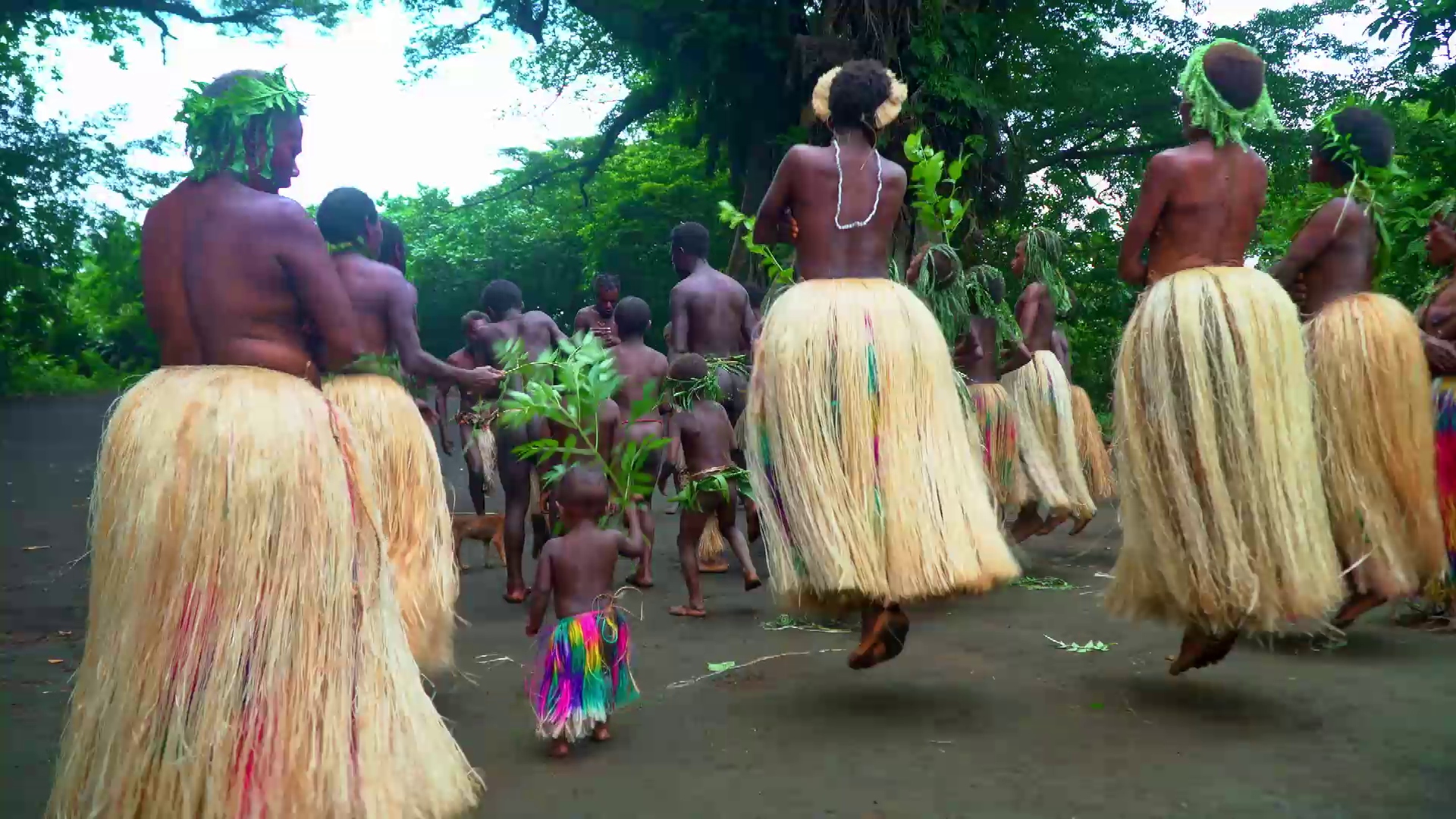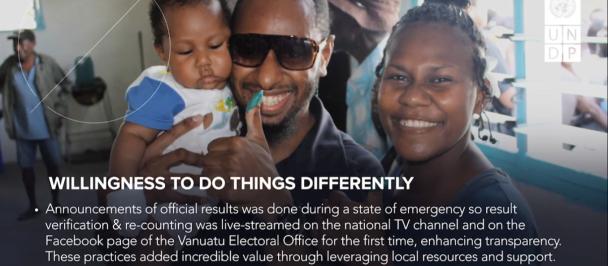Nasara communal consultation and celebration, Yakel village, Tanna Island, Vanuatu (Photo: UNDP)
As more governments contend with the exigencies of decision-making in an age of increasing uncertainty and dynamic risk, concepts like “anticipatory planning” and “future-fit governance” take on all the more significance. But what does it actually mean and look like for a Government Ministry to “future-fit” its strategies and processes?
As part of a broader exploration of anticipatory governance in the Pacific, the UN Development Programme (UNDP) has partnered with Vanuatu’s Ministry of Internal Affairs (MoIA) to explore possible responses to this question by expanding its own planning toolbox and decision-making approaches to encompass long-term thinking.
The impetus to look to the future
As a small island nation vulnerable to natural disasters and subject to both the opportunities and shocks that come from its interdependency with other Pacific economies, Vanuatu is a country well versed in the importance of anticipation and cooperation. The 400-year-old Ni-Vanuatu concept of nasara, a governance system by which villages would gather in a meeting place (the nasara) to jointly explore strategies to deal with future. It deals with immediate challenges no one community could tackle on its own and it could be seen as an ancient form of anticipatory planning.
It is important to have a forward-looking development strategy in Vanuatu to reflect the culture of optimism and forward-looking aspirations of the people. As a result, we find ourselves navigating from crisis to crisis, relying on planning structures that are ill-suited to the dynamic multi-sectoral challenges. As Minister officials, we run humanitarian responses, designed by others instead of taking charge of the direction of our country’s development plan.
Recognizing these gaps, and as a ministry with influence on the approaches of others, we used the opportunity of our recent MoIA Corporate Plan (2022-2026) development as a jumping-off point for seeding institutional change. While we can’t predict the future, we saw an opportunity for new planning instruments and analysis to help us navigate it with greater intentionality and foresight.
The elevation of this intention in the new Corporate Plan set the stage for MoIA Departments to apply future-oriented approaches and capacities to their planning. Building on the Corporate Plan and newly developed Department Business Plans as the Ministry’s internal-facing strategy, we turned outwards – engaging sector stakeholders from other government Ministries, the private sector, Development Partners, NGOs, Chiefs and community leaders – to develop the five-year Nasara Sector Strategy by drawing on cross-sectoral wisdom and collaboration as foundations for anticipatory decision-making.
Where do we start?
For us, being “future-fit” means revamping the ways we harvest collective intelligence and using the insights to design simple yet adaptable plans that tap into available resources, skills and lived experience. Our approach has been to start with what is most practical, feasible, and relevant to existing challenges. With UNDP’s support to connect the right tools and resources, the MoIA’s future-fitting efforts in this first stage look like:
Restructuring internal priorities and ways of working based on foresight: Expanding our time horizons and sources of evidence to identify more sustainable responses to complex challenges – e.g., tight fiscal space, pandemics, natural disasters – and drawing on futures-informed insights to identify opportunities for joint action across the many sectors that comprise the MoIA.
Leveraging futures research to bring new perspective to existing policy imperatives: Producing “Foresight Briefs” to reframe understanding of key issue areas. For instance, we are exploring future opportunities and long-term trends that can shape our work on topics like empowering youth through the safe use of technology; addressing the wellbeing of labour mobility workers; leveraging consent and ethics-based approaches to strengthen data protection; and optimizing the impact of development aid amidst decentralization.
Broadening our definition of risk-informed programming: Finding ways to bring global and local intelligence on risk to our Ministry and ensuring that the feasibility and contextual analysis studies we commission every day on new legislation, projects and infrastructure intentionally consider long-term risks and project evolution. This requires regular examination of evolving risk and their implications for mitigation strategies, to be undertaken through a bi-annual horizon scan exercise.
Staying true to our past to chart new paths into the future
The MoIA’s experiences thus far attest to the importance of starting with what we have. Innovation doesn’t have to mean grand, costly governance reforms. It can start by infusing more future-informed research and dialogue into existing planning processes. Most importantly, it is about prioritizing shifts that can be sustained, offering touch points to gradually deepen the ways we understand and respond to possible futures throughout our work.
Vanuatu’s proud historical tradition of consultation and collaboration for the common good carries immense possibility to be reshaped and strengthened through emerging foresight and anticipatory risk planning strategies. As we continue to identify pathways towards future-fit governance, we see the value of learning from our past – carrying forward the traditions and mindsets that have long served Ni-Vanuatu communities in the face of uncertainty – blending this wisdom with new approaches to inform our futures.
---
This blog is part of the UNDP RBAP Strategy, Policy and Partnership (SPP) unit’s “UNDP Strategic Foresight & Anticipatory Offer" Series. The first post shares insights into UNDP’s regional portfolio and approach. The second introduces the UNDP Pacific Office’s exploration of anticipatory governance, of which this initiative with the Vanuatu Ministry of Internal Affairs is part.

 Locations
Locations

